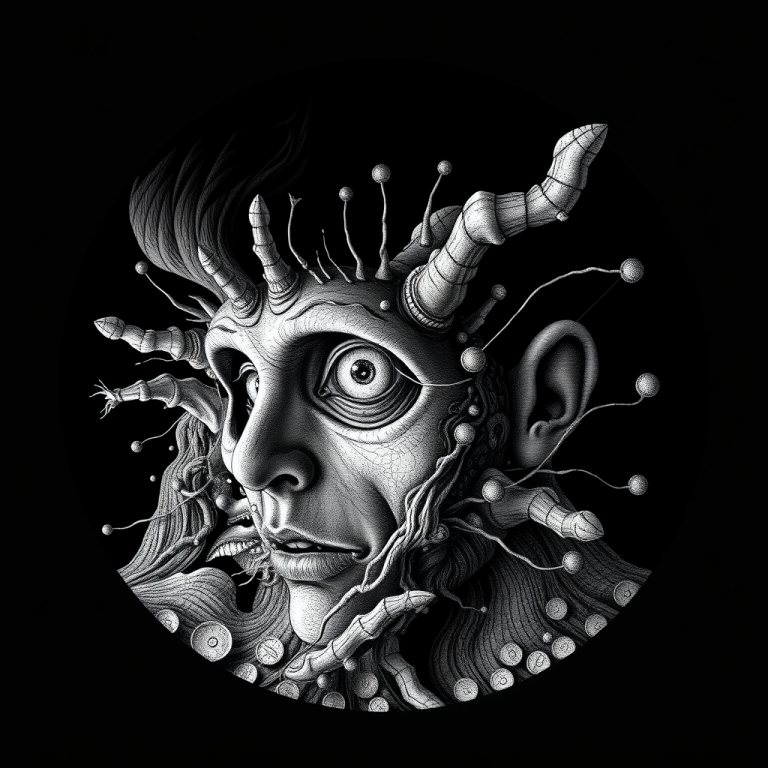The Distraction Of The Ultimate Eye Test – Are You Paying Attention?
What Did You See?
Sorry What?
Have you ever wondered how well you can concentrate when faced with distractions? The Ultimate Eye Test is a world design to test your concentration span and observe what grabs your attention everyday. The video below may prove this as it questions what you see.

Do Not Get Distracted
The Psychology Behind Distraction
From a psychological perspective, concentration involves the ability to focus mental resources on a particular task while filtering out irrelevant stimuli. The concept of selective attention explains how we prioritize certain sensory inputs over others. When a visually appealing stimulus, like a beautiful person, is present, it can easily capture our attention due to its rewarding nature. This phenomenon is deeply rooted in evolutionary psychology, where paying attention to potential mates or threats had survival benefits. What is real and what is not?
Moreover, the human brain has a natural tendency to seek pleasure and avoid discomfort. This is why we might find ourselves drawn to attractive visuals or engaging content even when we’re supposed to focus on something else. Our attention is constantly being divided and reallocated based on what we find most rewarding at the moment.
The Essence of Concentration
Concentration is a fascinating ability that varies from person to person. It requires mental effort to stay focused on a task while ignoring potential distractions. But what happens when those distractions are intentionally placed in front of us?
Distraction Psychology
Psychological Insights
The susceptibility to distraction varies among individuals based on cognitive load, motivation, emotional state, and even cultural influences. Understanding these factors helps us develop strategies to enhance our concentration. Techniques such as mindfulness meditation, goal-setting, and creating a distraction-free environment can significantly improve our focus.
In a world filled with constant stimuli, acknowledging the impact of beauty on our attention can help us better navigate our daily tasks. Embrace the journey of understanding your mind, and enjoy the process of honing your focus. Next time you find yourself captivated by beauty, take a moment to reflect on your concentration abilities and discover what truly holds your focus.

What Is Beautiful
The Beautiful Distraction
Imagine watching a video featuring a beautiful person. The visual appeal is undeniable, but what about the content they’re presenting? Are you captivated by their looks, their accent, or the information they’re sharing?
Visual Appeal – They are undeniably beautiful
Voice and Accent – They have a lovely accent that might draw your attention
Verbal Slip-Ups – Some words are mispronounced, creating small mental hiccups
Hand Movements – Their hand movements are out of sync with their speech
Attire – They might be wearing attention-grabbing clothing, which diverts focus
Content – What they’re talking about might seem odd or unexpected
Background – The background appears fake or staged or just spectacular
These elements can significantly impact your ability to concentrate on the information being shared.

The Questions to Ponder
When faced with such distractions, ask yourself –
Did I actually take in any information, or did I just watch the beautiful person?
Did I hear everything they are saying?
Was the content relevant to me?
What specific distractions caught my attention?
Am I genuinely interested in the topic?
What is the video actually about?
Did I get distracted often?
How well did I listen to what they are saying?
The Subjective Nature of Concentration
The answers to these questions are what is reality and what is not and then the gray area. They depend on how you perceive and prioritize information. Each person’s concentration span and susceptibility to distractions are different. What one person finds distracting, another might overlook entirely.

The Psychology of Distraction – Men, Women, Children, and the Elderly
Men
Men are often stereotypically seen as more visually oriented, but this isn’t the whole story. They might be more distracted by visual stimuli, especially those that are perceived as attractive. However, cognitive and contextual factors play significant roles as well. For instance, a man deeply engaged in a task may be less likely to be distracted by visual appeal.
Women
Women, on the other hand, are thought to have a broader perceptual focus, often noticing more details in their environment. This can mean they are both more aware of and potentially more distracted by a wider range of stimuli, not just beauty. Context, relationship to the person, and the situation can significantly influence how distraction works for women.
Children
Children’s brains are still developing, and their capacity for sustained concentration is often limited. They are naturally curious and can be easily distracted by new and interesting stimuli, including beauty. However, with proper guidance and training, children can learn to improve their focus over time.
The Elderly
As people age, changes in cognitive function can affect concentration. The elderly may find it harder to filter out distractions, making them more susceptible to being distracted by beauty and other stimuli. However, life experience and accumulated wisdom often help them recognize and manage these distractions better.
Cultural Influences
Different Races and Cultures
Perception of beauty and distraction varies significantly across different cultures and races. What is considered beautiful in one culture may be so different if not even rude in another. For example, while some cultures emphasize symmetry and fair skin, others might value different traits like body shape or hair texture. These cultural differences influence how and what distracts individuals.
Ohhhh Shiny
Universal Elements of Distraction
Despite cultural differences, there are universal elements that capture human attention. Beauty, regardless of its form, tends to be a significant distractor. This universal response can be attributed to evolutionary psychology, where noticing beauty is linked to survival and reproduction instincts.
Everyone Gets Distracted by Beautiful Things
It’s a well-known fact that beauty can be a powerful distraction. This isn’t just about physical appearance but also extends to beautiful art, music, and nature. The human brain is wired to appreciate beauty, which can trigger pleasure centers and captivate our attention. This response to beauty can sometimes overshadow our ability to focus on other tasks.
Conclusion
The Ultimate Eye Test challenges us to examine our ability to concentrate amidst distractions. By testing what grabs our attention and what we tend to overlook, we gain valuable insights into our personal focus mechanisms. Beauty, with its undeniable allure, often serves as a powerful distraction, captivating our minds and diverting our attention from other important details. So what is real and what is really beautiful. Bigfoot is pretty dam stunning as an idea but is that beautiful or skeptical.
Join the Discussion
How do you handle distractions, and what techniques do you use to stay focused? Have you noticed any patterns in what tends to distract you the most?








I am really inspired together with your writing skills
and also with the structure in your blog. Is this a paid theme
or did you modify it your self? Anyway stay up the excellent high quality
writing, it’s uncommon to look a nice weblog like this one
today. LinkedIN Scraping!
Each paragraph feels like a step along a thoughtful path, leading to places I never knew existed within myself.